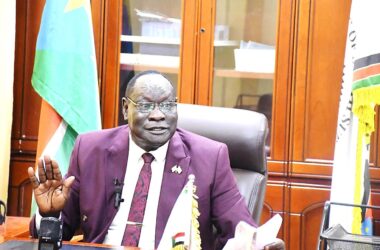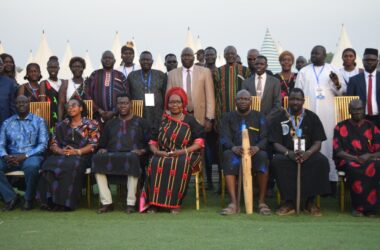By Chol D. Johnson
South Sudan has officially joined Eastern and Southern Africa Water and Sanitation (ESAWAS).
According to official from Ministry of Water Resources and Irrigation, it marked a key step toward strengthening national water regulation and aligning with regional standards.
The accession was formalized on September 25, 2025, during a signing ceremony held in Lusaka, Zambia following the successful completion of all membership requirements.
The South Sudanese delegation, led by Undersecretary Achier Manyuat John, ratified ESAWAS’s constitution, officially integrating the ministry into the regional regulatory body. The signing was witnessed by representatives of all member institutions.
Achier expressed deep appreciation to ESAWAS leadership and reaffirmed South Sudan’s commitment to active collaboration in regulatory development, capacity building, and strengthening information systems for water and sanitation services. “This marks a key step in strengthening South Sudan’s role in regional water and sanitation regulation. The Ministry of Water Resources and Irrigation is truly grateful to be a member,” he said.
The undersecretary received the official membership certificate from ESAWAS’s chairperson, in a ceremony attended by the association’s executive leadership. The move is expected to enhance South Sudan’s regulatory capacity and accelerate reforms in the water sector, aligning national efforts with regional standards.
South Sudan’s membership in ESAWAS comes amid broader institutional reforms aimed at improving service delivery and infrastructure development. The ministry’s inclusion signals a strategic commitment to regional cooperation and sustainable water governance.
The Eastern and Southern Africa Water and Sanitation (ESAWAS) Regulators Association is a regional network established in 2007 to promote cooperation among water and sanitation (WSS) regulators. Legally registered in Zambia and hosted by the National Water Supply and Sanitation Council (NWASCO), ESAWAS is governed by a constitution ratified in 2010. Its core mission is to strengthen regulatory effectiveness across member states through capacity building, information sharing, and the adoption of best practices.
The association works closely with global partners such as the International Water Association (IWA), World Health Organization (WHO), and Water & Sanitation for Urban Populations (WSUP).
These collaborations focus on advancing Citywide Inclusive Sanitation (CWIS), promoting pro-poor approaches, and enhancing regulatory capacity. ESAWAS also supports the use of tools like Sanitation Safety Planning (SSP) to manage health risks across the sanitation service chain, contributing to safer and more equitable outcomes in the region.



